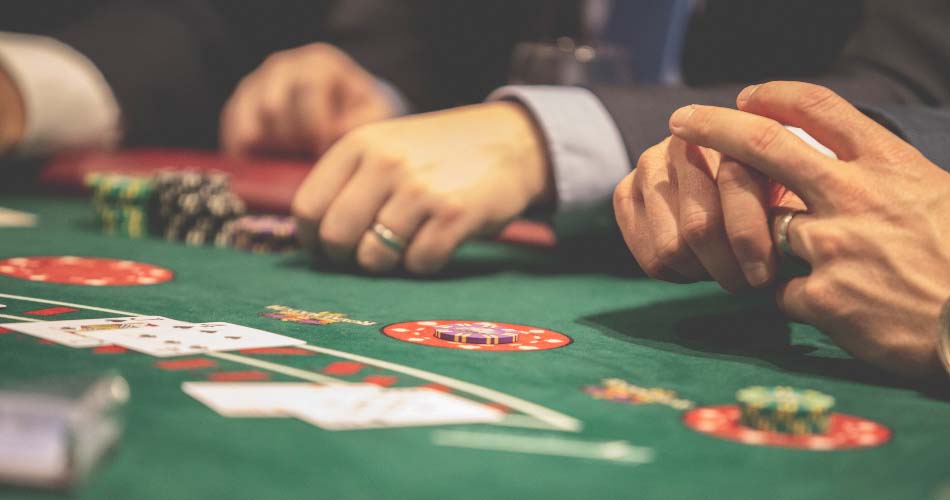Betting Shops To Reopen In April, Casinos And Bingo Halls In May

Yesterday (February 22), Prime Minister Boris Johnson announced his roadmap out of lockdown with plans on when certain Covid-19 restrictions will be lifted and when betting shops and casinos will reopen.
The roadmap is comprised of a four-stage plan which will see betting shops in England reopen on April 12th in the second stage, with casinos, bingo halls, all non-essential retail, indoor hospitality, and hotels following on May 17th in the third stage. However, Johnson stressed that all four stages of his plan would depend on the number of Covid-19 cases, are subject to reviews and could change.
There will be a five-week interval between each stage starting from March 8th, when schools will reopen with outdoor activities allowed and meetings between two people outdoors. From March 29th, outdoor gatherings of either six people or two households will be allowed, including in private gardens.
From April 12th, non-essential retail and hospitality businesses will open alongside gyms and swimming pools. Then, from May 17th, indoor hospitality and hotels will open, outdoor social contact rules will be lifted, spectators will be allowed to attend sports events, and six people or two households will be allowed to meet indoors. In the final stage, from June 21st, all social contact rules will be lifted.
According to GamblingInsider, the British Horseracing Authority is reportedly in talks with gambling operators t delay the Grand National by several days, as it’s currently due to take place on April 10th, two days before betting shops will reopen. Reports suggest that the Grand National, the biggest horseracing event in the UK, will be swapped with the Scottish Grand National, which is scheduled for April 17th.
The news of betting shop and casino reopenings come days after the Betting and Gaming Council urged the UK Government to reopen gambling venues at the same time as other hospitality venues and give the brick-and-mortar gambling industry a “level playing field”.
BGC Chief Executive Michael Dugher said in a statement that “Betting shops must be allowed to reopen alongside other non-essential retail” before adding that Ministers must allow betting shops to “play their part in stimulating the high-street, along with other non-essential retailers.”
Then, speaking about casino reopenings and the controversial 10 PM casino curfew, Dugher said: “Ministers must allow casinos to reopen at the same time as other hospitality businesses, including pubs, and they must scrap the curfew. It didn’t work last summer, and it won’t work now.”
He ended his post on the BGC website by saying: “There will be no let-up in our commitment to safety, but we need the economy to open up again – not least if we are to revive the country’s tax take and fund vital public services like the NHS. But the thousands of people employed in betting shops and casinos deserve nothing less than a level playing field, so that everyone gets the same opportunities to recover.”
Similarly, Debbie Husband, the National Director of Operations for UK Grosvenor, urged the UK Government to scrap the 10 PM casino curfew in a blog post for the BGC. In the post, Husband claimed the curfew “crippled” the casino sector and called on the Government to give casinos a “chance of rebuilding our business”.
UKGC Launches New Gambling Block Service Campaign
Also this week, the UK Gambling Commission has launched a new campaign to promote the different gambling block services banks in the UK offer to customers. The services allow customers to block any payments made to gambling operators like casinos from their debit cards.
According to FocusGN, the campaign is part of the Gambling Commission’s new “money and rights” website section, which launched back in January with the aim of providing people with information on their consumer rights and options when gambling. The guidance provides a full breakdown of the gambling block services and safer gambling tools provided by UK high-street banks, including Barclays, Halifax, NatWest, Santander, the Bank of Scotland, HSBC, Lloyds, and more.
The guidance also includes information on the tools available with digital banks Starling and Monzo, which was the first bank to introduce a gambling blocker. However, several banks, including Nationwide, Metro Bank, and Virgin Money, were all exempt from the list as they do not yet offer any type of gambling block.
The launch of the UK Gambling Commission’s new campaign comes days after digital bank Monzo urged the UK Government in a letter to force all banks in the UK to offer gambling blocks to customers. The digital bank stressed that all obstacles for anyone wanting to stop or restrict gambling should be removed to help clamp down on gambling addiction.
Monzo’s letter reads: “Ultimately, the Gambling Act review offers a unique opportunity to create a world-leading self-exclusion framework in the UK to reduce gambling harms, and help consumers gain control of their finances. The rise in online gambling, and new ways to pay, requires a robust response from the Government. These small changes, in combination with other, existing self-exclusion tools, would help the UK to create world-leading harm-reduction standards.”
More recently, Monzo announced a partnership with open-banking software provider TrueLayer for a “universal gambling block”. The two companies are trialling an open-banking API that will be offered to all financial service providers (Banks, loans, credit cards, and e-Wallets), allowing their customers to block all gambling transactions.
A statement from Monzo reads: “Everyone should have access to a gambling block, regardless of who they bank with – or how they pay. This is relatively simple for banks and open-banking providers to put in place, but can have a big impact on someone’s well-being. Other banks and open-banking providers should follow our lead, to allow gambling blocks to cover non-card payments. Providing customers with self-exclusion tools for gambling is only the beginning, and there’s so much more that we can do.”